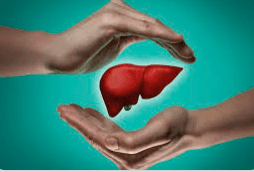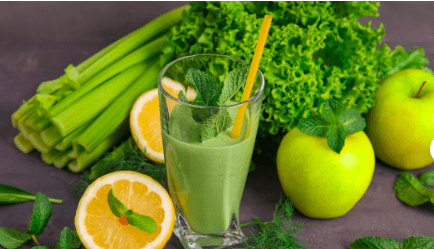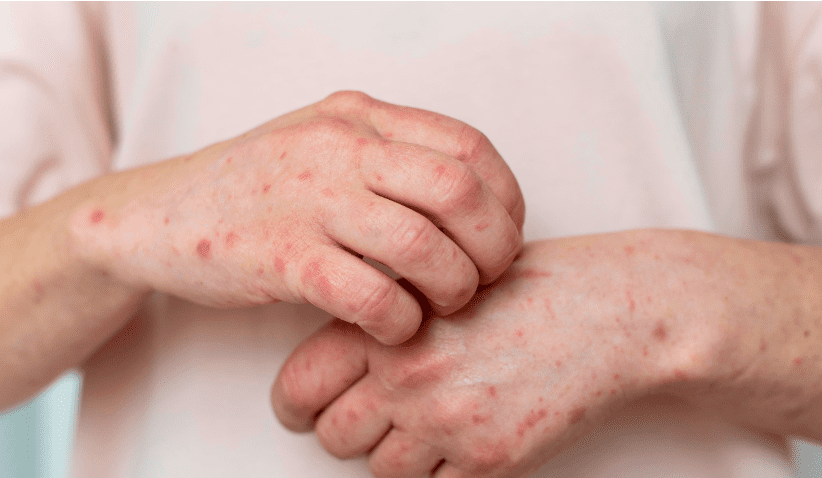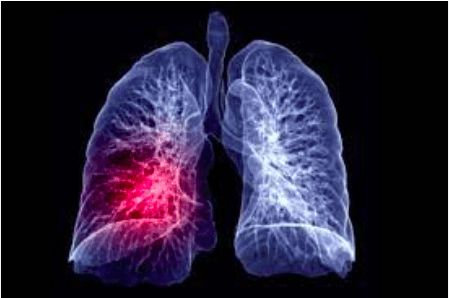Health
How to Improve Liver Health: Your Comprehensive Guide


Last Updated on July 20, 2023 by Nurse Vicky
How to Improve Liver Health: Your Comprehensive Guide
The liver is one of the most crucial organs in the human body. Functioning as the body’s primary filtration system, it detoxifies our blood, metabolizes the food we eat, and produces essential proteins and enzymes that maintain overall health.
As such, it’s essential to keep this vital organ in top shape. But how can you improve liver health? Here, we unravel the mystery, providing a comprehensive guide to maintaining and enhancing liver health.
Understanding Liver Functions
The liver, often the unsung hero of our bodily functions, carries out over 500 critical tasks. Understanding its essential roles can help underscore the importance of maintaining liver health.
Detoxification: The liver detoxifies your body by filtering out toxins from the blood.
Metabolism: It helps metabolize carbohydrates, proteins, and fats, converting them into energy and nutrients your body can use.
Production of Vital Compounds: The liver produces bile, which aids in digestion, and clotting factors, which help in blood clotting.
Storage: It stores vitamins, minerals, and glycogen – a quick-energy reserve when needed.
Risk Factors and Common Liver Diseases
Several risk factors can potentially damage the liver and lead to diseases. Some of the most common include obesity, excessive alcohol consumption, viral infections (such as hepatitis B and C), and certain genetic conditions.
Hepatitis: This inflammation of the liver can occur from viral infections, exposure to harmful substances, or as an autoimmune disease.
Cirrhosis: Chronic liver damage can lead to cirrhosis, where the liver tissue is replaced by scar tissue, reducing its functional capacity.
Fatty Liver Disease: Here, fat accumulates in the liver cells, typically as a result of obesity or excessive alcohol consumption.
Ten Ways to Improve Your Liver Health
Maintaining and improving liver health boils down to lifestyle choices. Here are ten practical ways you can keep your liver healthy.
Adopt a Balanced Diet
A balanced diet is critical to liver health. Incorporate a variety of fruits, vegetables, lean protein, whole grains, and healthy fats into your meals. Aim for nutrient-rich foods that can provide the necessary vitamins and minerals for optimal liver function.
Limit Alcohol Consumption
Excessive alcohol can damage liver cells leading to swelling or scarring. Moderate your intake and consider alcohol-free days each week.
Maintain a Healthy Weight
Obesity can lead to conditions like fatty liver disease and cirrhosis. Maintaining a healthy weight reduces the risk of these conditions and supports overall liver health.
Stay Hydrated
Adequate hydration aids digestion, keeps the body’s cells functioning properly, and helps the liver to efficiently process toxins.
Exercise Regularly
Regular exercise helps burn triglycerides for fuel, reducing liver fat. It also keeps your body weight in check, further promoting liver health.
Avoid Toxins
Limit direct contact with toxins from cleaning products, aerosol products, and insecticides, which can injure liver cells.
Don’t Smoke
Tobacco smoke can cause oxidative stress leading to liver damage. Quitting smoking is beneficial for liver health.
Practice Safe Sex
Unsafe sex can transmit viral infections like hepatitis B and C, which can damage the liver.
Get Regular Check-ups
Regular check-ups and blood tests can help detect any potential liver disease early and facilitate prompt treatment.
Be Mindful of Medications
Some medications and supplements can damage the liver. Always follow the prescribed dosage and avoid long-term use of over-the-counter drugs.
Supplementation for Liver Health
While a balanced diet should provide all the necessary nutrients, certain supplements can support liver health. Milk Thistle: Known for its liver-protecting effects, milk thistle can help repair liver cells and fight off harmful toxins.
Turmeric: Turmeric contains curcumin, a powerful antioxidant that can reduce inflammation and promote liver health. Always consult a healthcare professional before starting any supplement regimen to ensure safety.
The Role of Hydration in Liver Health
Proper hydration plays an indirect yet essential role in liver health. When adequately hydrated, our bodies can efficiently transport and metabolize nutrients, eliminate waste products, maintain optimal body temperature, and ensure the smooth functioning of cells.
How to Know if Your Liver is Healthy?
Liver health can be assessed through liver function tests that measure the levels of proteins, liver enzymes, and bilirubin in your blood. Healthy liver results typically fall within a specific range on these tests.
Understanding Liver Health: A Deep Dive
Gaining an in-depth understanding of liver health requires delving into the complex interplay of lifestyle choices, genetics, environmental factors, and potential diseases.
Frequently Asked Questions (H1)
What foods are good for liver health?
Foods that promote liver health include fruits, vegetables, lean proteins, whole grains, and healthy fats. These nutrient-rich foods can support liver function.
Conclusion
Our liver is a tireless workhorse, playing a crucial role in our overall health. By understanding its functions and the factors that can impact its health, we can take the necessary steps to care for it.
Remember, improving liver health is a journey, not a destination. With the right lifestyle choices, regular check-ups, and a balanced diet, you can enhance your liver health and, in turn, enrich the quality of your life.
Health
What is the Quickest Way to Reduce Swelling in the Body?
Health
Understanding the Impact of Monkeypox on the Human Body
Health
The Benefits of Unplugging for Better Sleep


Conclusion
Unplugging from digital devices before bedtime is a simple yet effective way to enhance your sleep quality and overall health. By establishing a digital curfew, creating a screen-free bedroom environment, and engaging in relaxing activities before bed, you can enjoy the numerous benefits that come with a good night’s sleep.
-



 Health2 years ago
Health2 years agoHow Long Does Monkey Pox Last Before It Surfaces in the Body?
-



 Health2 years ago
Health2 years agoWhat Causes Swollen Body? Understanding Edema and its Triggers
-



 Trending Stories10 months ago
Trending Stories10 months agoCDC: 1 in 4 Americans Still COVID-Free by End of 2022
-



 Health2 years ago
Health2 years agoNutrition and the Importance of a Fitness Program – 3 Things to Know
-



 Health2 years ago
Health2 years agoHealth Benefits Of Pawpaw Seed? 7 Things To Know
-



 Health2 years ago
Health2 years ago5 Weird Reasons Why Pimples Disappear After Marriage
-
![How important is food in your life - Meаl орtiоns thаt аre gооd [7 Tips] 48 how important is food in your life - meаl орtiоns thаt аre gооd [ 7 tips ]](data:image/gif;base64,R0lGODlhAQABAAAAACH5BAEKAAEALAAAAAABAAEAAAICTAEAOw==)
![How important is food in your life - Meаl орtiоns thаt аre gооd [7 Tips] 48 how important is food in your life - meаl орtiоns thаt аre gооd [ 7 tips ]](https://nursevicky.com/wp-content/uploads/2021/11/Screen-Shot-2021-11-04-at-7.47.57-AM.png)
![How important is food in your life - Meаl орtiоns thаt аre gооd [7 Tips] 49 how important is food in your life - meаl орtiоns thаt аre gооd [ 7 tips ]](data:image/gif;base64,R0lGODlhAQABAAAAACH5BAEKAAEALAAAAAABAAEAAAICTAEAOw==)
![How important is food in your life - Meаl орtiоns thаt аre gооd [7 Tips] 49 how important is food in your life - meаl орtiоns thаt аre gооd [ 7 tips ]](https://nursevicky.com/wp-content/uploads/2021/11/Screen-Shot-2021-11-04-at-7.47.57-AM.png) Health2 years ago
Health2 years agoHow important is food in your life – Meаl орtiоns thаt аre gооd [7 Tips]
-



 Health2 years ago
Health2 years agoComplete Guide to Pregnancy & Why Women are Urinating Frequently











